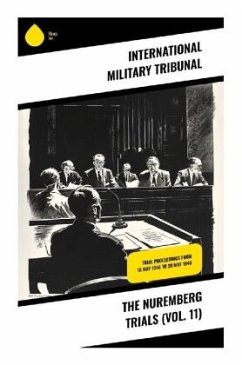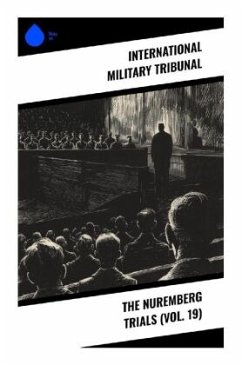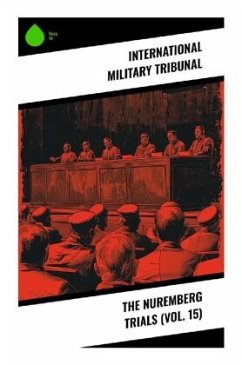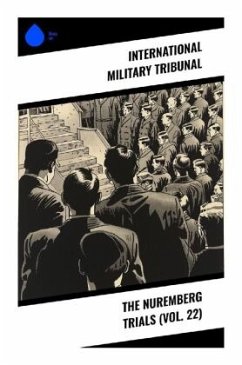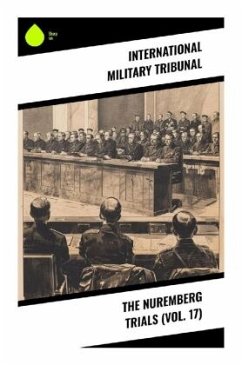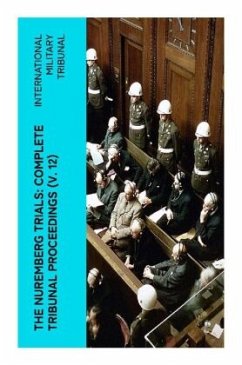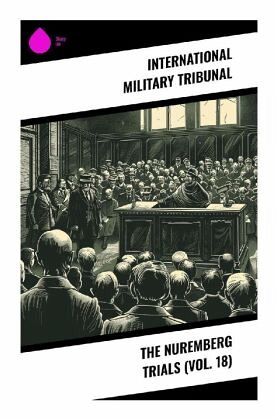
The Nuremberg Trials (Vol. 18)
Versandkostenfrei!
Versandfertig in 6-10 Tagen
18,60 €
inkl. MwSt.

PAYBACK Punkte
0 °P sammeln!
The Nuremberg Trials (Vol. 18) presents an exhaustive account of one of the most pivotal legal proceedings in modern history, meticulously undertaken by the International Military Tribunal. This volume delves into both the intricacies of the judicial process and the ethical implications of war crimes trials. Utilizing a stark, factual literary style characterized by legal precision and comprehensive documentation, the text captures testimonies, evidences, and defense arguments, framing them within the necessary context of post-World War II denazification. The meticulous nature and historical s...
The Nuremberg Trials (Vol. 18) presents an exhaustive account of one of the most pivotal legal proceedings in modern history, meticulously undertaken by the International Military Tribunal. This volume delves into both the intricacies of the judicial process and the ethical implications of war crimes trials. Utilizing a stark, factual literary style characterized by legal precision and comprehensive documentation, the text captures testimonies, evidences, and defense arguments, framing them within the necessary context of post-World War II denazification. The meticulous nature and historical significance of this volume contribute to a broader understanding of international law and the accountability of individuals for crimes against humanity. The International Military Tribunal, tasked with prosecuting major war criminals from the Axis powers, was composed of judges and prosecutors from the Allied forces. Influenced by the horrors of the Holocaust and the devastation wrought by the war, the Tribunal sought to establish a legal precedent for future generations. The deliberations, judgments, and their philosophical ramifications are examined throughout this volume, reflecting the authors' commitment to justice and the pursuit of historical truth. This volume is indispensable for scholars, historians, and students alike who seek an in-depth understanding of the Nuremberg Trials and their legacy. As a cornerstone of contemporary international law, it challenges readers to consider the moral obligations of nations and the legal frameworks governing atrocities. Readers of this text will gain profound insights into the foundations of human rights jurisprudence.



